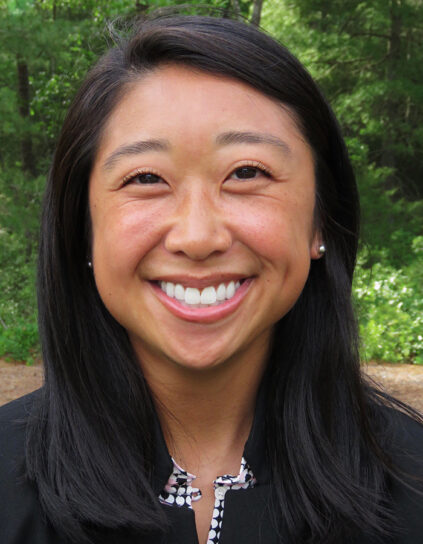Emma Taccardi
Emma Taccardi grew up in Rochester, NY and first explored her interest in marine science through a high school internship at the Woods Hole Science Aquarium. She later earned a B.A. from Hamilton College, where she majored in biology and minored in music. During her junior year of college, Emma spent a formative semester and summer at the Duke University Marine Laboratory. Her experience at the Duke Marine Lab allowed her to study marine ecology and conservation firsthand in unique places such as Panama, Puerto Rico, and St. Croix. After graduating from Hamilton, she was a coastal restoration intern at The Nature Conservancy on Block Island, RI, and a hydroecological engineering intern at the Lawrence Berkeley National Laboratory in Berkeley, CA. Through these positions, she appreciated the opportunity to juxtapose field- and lab-based applications, as well as nonprofit and federal experiences, respectively.
Emma recently graduated with a Ph.D. in marine biology from the University of Maine, where she was a fellow on a five-year sustainable aquaculture grant from NSF. Her research aimed to uncover the ecological success of parasitic sea lice—the primary economic hurdle of the salmon sector. Emma was fortunate to connect with other researchers at a variety of national and international conferences, where she received awards for Best Student Oral Presentation (International Conference on Copepoda 2017; Sustainable Ecological Aquaculture Network 2017), Best Student Poster Presentation (International Sea Lice Conference 2016), and written abstracts (World Aquaculture Society 2019). Toward the end of her graduate program, she was honored to represent the College of Earth, Life, and Health Sciences at the State House Hall of Flags event, where she conveyed the importance of her funding body and doctoral research to government leadership. In her final semester of graduate school, Emma enjoyed teaching—and learning from—an introductory marine science course for undergraduate students, who inspired her with their range of backgrounds and their hope for the future of our natural resources.
Although she was passionate about conducting research in the field and lab throughout her Ph.D. program, Emma was particularly captivated by the interdisciplinary nature of the networks in which she was involved. Through these collaborative experiences, she became increasingly interested in the connection between science and its implementation. Therefore, after graduating, she began working for the Barnstable Clean Water Coalition, an environmental nonprofit on Cape Cod, MA, where she collected and analyzed a range of data, and ultimately translated their meaning to find solutions to local environmental issues. Additionally, she was a seasonal fisheries interviewer for the National Marine Fisheries Service, and engaged with recreational fishermen throughout the Cape to collect statistics that inform fisheries management.
Moving forward, Emma is thrilled to represent Maine Sea Grant as a legislative Knauss Fellow, and to step out of her comfort zone within the natural sciences and into the realm of marine and coastal policy. Her five years in Maine made a lasting impression on her professional goals, enhancing her desire to strengthen the nexus between people and the environment.

